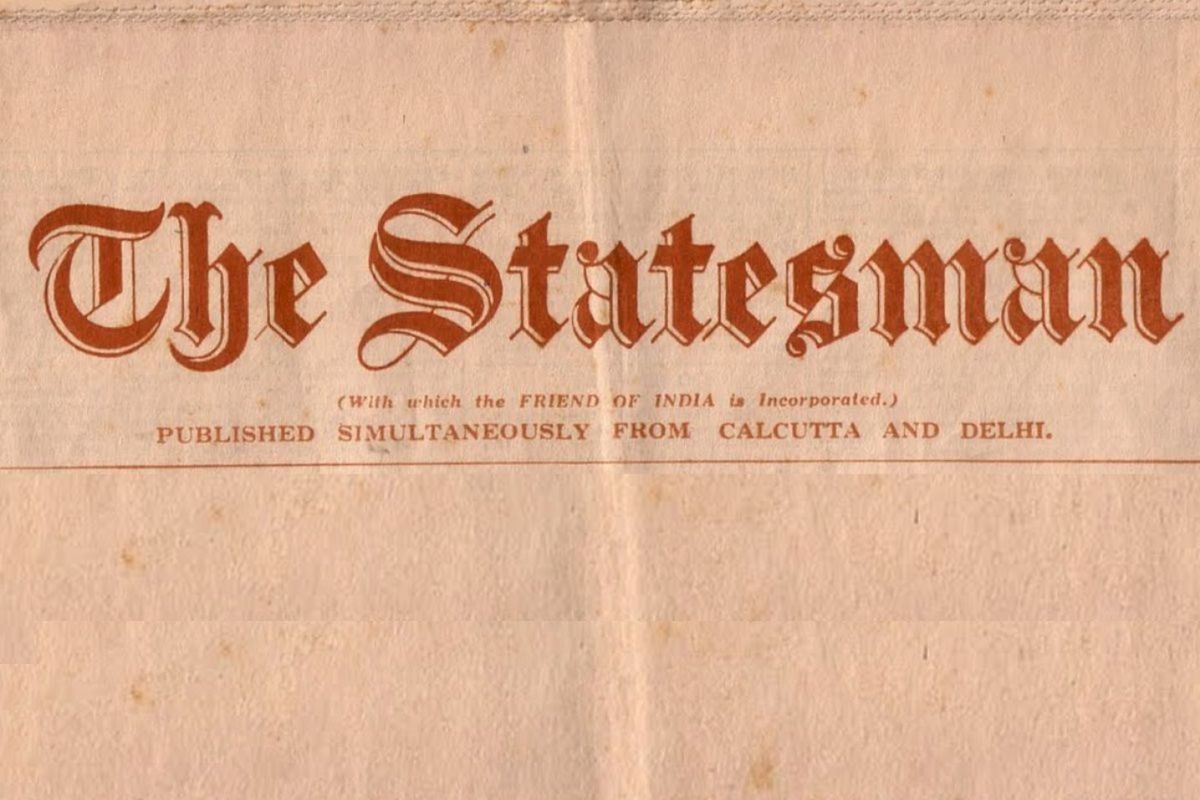A New Day, A New Dawn
There is a surprise for the readers. A special Poila Boishakh gift from none other than West Bengal chief minister Mamata Banerjee. Who has written a piece for this special edition.
On this day a century ago, these were some of the news items The Statesman readers got to read about India and the world.

OCCASIONAL NOTE
General Briggs’ account of the situation in Russia harmonises so exactly with all the known facts and inherent probabilities as to make it particularly easy of acceptance. Eighty-five per cent of the population are anti-Bolshevist, according to the General’s narrative; five per cent are commissaries, that is to say, they constitute what may be called, for want of a better term, the civil administration of the Bolsheviks; five per cent are highly paid assassins, that is, they constitute the Bolshevik army or the nucleus of it; and the remaining five per cent are neutral, which may be taken to mean that they are willing to be either commissaries or highly paid assassins according to the state of the market. Of the commissaries an enormous number are Jews. It may seem incredible that this trifling minority of the population should have been in a position to reduce Russia to her present condition, but some historian has pointed out that the people who really ran the “Terror” in Paris in the tragic closing years of the eighteenth century did not exceed two hundred in number, and that those responsible for the various horrors of the French Revolution totalled less than a thousand. Mild as those horrors appear in comparison with the fate of Russia, the causes leading to both revolutions were very similar, and the courses followed by both have been more or less on parallel lines.
MEDICAL ARRANGEMENTS FOR TROOPS
Advertisement
ALLAHABAD, JULY 22
The Pioneer learns from an authoritative source that great improvement has been effected in the medical arrangements for the troops on the frontier during the past five weeks. A large number of the cases of sickness reported are happily not very serious, and deaths from heatstroke have been few considering the high temperatures which have prevailed. The hospital trains are said to be excellent, but the one difficulty at present being experienced is that of getting men sent to Murree who are brought by rail into Rawalpindi from Bannu, Kohat and Peshawar. This is due to want of adequate transport. Large quantities of ice are being despatched to the front from the Punjab but owing to the heat there is considerable wastage on the way and the provision of more ice and soda-water machines, and also of an independent supply of ice, would help still further to improve the situation.
CONDITION OF AFGHAN ARMY
SIMLA, JULY 22
A document recently found at Dakka throws an astonishing light on the condition of the Afghan army. The document is a copy of a report made by an Afghan officer who was sent to inspect the Frontier Guards just prior to the outbreak of hostilities. The officer says that nowhere did he find the garrisons even within ten per cent of what they were represented to be at the fort. At the head of the Khyber where he expected find 200 men he found only two. In another fort there was absolutely nobody at all. There is good reason to believe that the same condition of affairs exists with regard to the bulk of the other Afghan troops, with the exception of the Birkot, Kabul, Kandahar and Ghazni regiments and a few batteries of Artillery.
BURMA LEGISLATIVE COUNCIL
RANGOON, JULY 22
A meeting of the Burma Legislative Council will be held about the 22nd August when the Rangoon Development Trust Bill will be introduced. The Rangoon Municipal Bill, which is largely on the lines of the Bombay Municipal Bill will be introduced at the November session of the Council. For the purpose of dealing with the two Bills, Mr. Gavin Scott, I.C.S., President, Rangoon Municipality, and C. Hlay Oung, a Burmese barrister who was a Municipal Commissioner for six years, will be added to the Legislative Council. Other legislation includes a Bill for the creation of District Councils and the University Bill.
BRITISH INDIANS IN SOUTH AFRICA
The Deccan Sabha enters an emphatic protest against the action taken by the Union Parliament in passing a Bill prohibiting British Indian subjects from acquiring fixed property through associations, and from taking out licences for new businesses in the Transvaal. The effect of thus depriving the Indian community of their vested rights to such ownerships of land and to trade throughout the province will virtually be that they will in course of time be driven to leave the country. The Sabha earnestly prays the Government of India to make urgent representations to the Governor-General of South Africa and his Majesty’s Government in England so that the Royal assent may be withheld from this Bill.
Advertisement